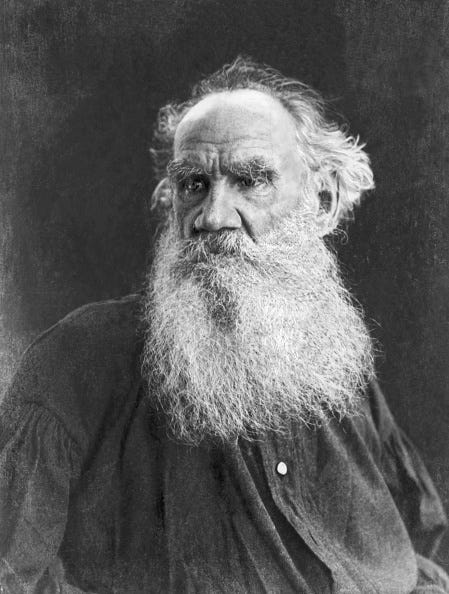“Blindman” by David Wagoner from Traveling Light. © University of Illinois Press, 1999.
ORIGINAL TEXT AND AUDIO - 2017
It's the birthday of novelist Saul Bellow, born in Lachine, Quebec (1913). His parents were Russian immigrants. His father worked in a bakery; he delivered coal; and he was a bootlegger, smuggling alcohol across the border during Prohibition. When Saul was nine years old, the family moved to Chicago, the city that would become the setting of many of Bellow's novels.
Bellow studied anthropology and sociology at Northwestern Univeristy. In 1938, a year after he graduated, Bellow went to work for the Chicago branch of the WPA Writers' Project.
He was working on a novel, Ruben Whitfield, but he ended up abandoning it. In 1942, his second novel, The Very Dark Trees was going to be published until the editor got drafted. Bellows burned the manuscript. He was working part-time for the Encyclopedia Britannica when his first novel, Dangling Man,(1944), was published to success. He got some good reviews, went off and served in the Marines, then moved to Paris and began writing the book that would make him famous: The Adventures of Augie March (1953). Bellows worked on The Adventures of Augie March in Paris, New York, Italy, Austria, and New Jersey—never in Chicago. But, he said, "It was Chicago before the Depression that moved my imagination as I went to my room in the morning, not misty Paris with its cold statues and its streams of water running along the curbstones." Augie March begins: "I am an American, Chicago born — Chicago, that somber city — and go at things as I have taught myself, free-style, and will make the record in my own way: first to knock, first admitted; sometimes an innocent knock, sometimes a not so innocent. But a man's character is his fate, says Heraclitus, and in the end there isn't any way to disguise the nature of the knocks by acoustical work on the door or gloving the knuckles."
On this day in 1881, Leo Tolstoy set off on a pilgrimage to the Optina-Pustyn monastery. He was 52 years old, and his two greatest novels, War and Peace (1869) and Anna Karenina (1877), were behind him. He had found himself in a crisis—he was famous, had a family and land and money, but it all seemed empty. He was unable to write, had trouble sleeping, contemplated suicide. He read the great philosophers, but found holes in all of their arguments. He was amazed that the majority of ordinary Russians managed to keep themselves going every day, and he finally decided that it must be their faith. From there, it was a short time until Tolstoy took a walk in the woods and found God. He wrote: "At the thought of God, happy waves of life welled up inside me. Everything came alive, took on meaning. The moment I thought I knew God, I lived. But the moment I forgot him, the moment I stopped believing, I also stopped living."
His wife Sophia was not so thrilled with his conversion. He renounced meat, sex, alcohol, fiction, tobacco, and the temptations of a family. He dressed like a peasant. He wanted to give all of his money away, but Sophia wanted to live what she considered a normal life, not to mention raise their 10 children.
Tolstoy made his first visit to Optina-Pustyn in 1877, a visit in which he apparently exhausted the chief starets—or community elder—with his questions. On this day in 1881 he set off on a second visit, and this time he decided that to be more like the common people, he would walk all the way there, dressed in his peasant coat and wearing shoes made out of bark. He was pleased with his spiritual guidance, but he wasn't used to walking in bark shoes, so by the time he made it to Optina his feet were so covered in blisters that he had to take the train back home.
It's the birthday of novelist and short-story writer James Salter born James Horowitz, in New York City (1925). He attended West Point and became a pilot in the Air Force. He flew 100 combat missions during the Korean War, and served as a squadron leader in Europe before retiring in 1957 to become a writer. His first two novels, The Hunters (1957) and The Arm of Flesh (1960), were based on his experiences as a combat pilot. Next came what he called "the first good thing I wrote," A Sport and a Pastime (1967), a novel about the love affair between a Yale dropout living in Paris and a working-class French girl.
Be well, do good work, and keep in touch.®
CELEBRATE 49 years of A Prairie Home Companion with the original Powdermilk Biscuit t-shirt - CLICK HERE






These never get old. Thank you for repurposing them daily.
I especially gravitated towards Leo Tolstoy and his peasant rags. Awhile ago, I was introduced to the anti-hero protagonist in the Razor's Edge. Laurence Durrell renounced the material world and lived like a philosopher bum. I felt very much entranced by his minimalism. It stayed with me. I often wonder if my own monetary possessions are deterring me from a fuller, brighter lifestyle. btw the Razor's Edge was authored by Somerset W Maugham.